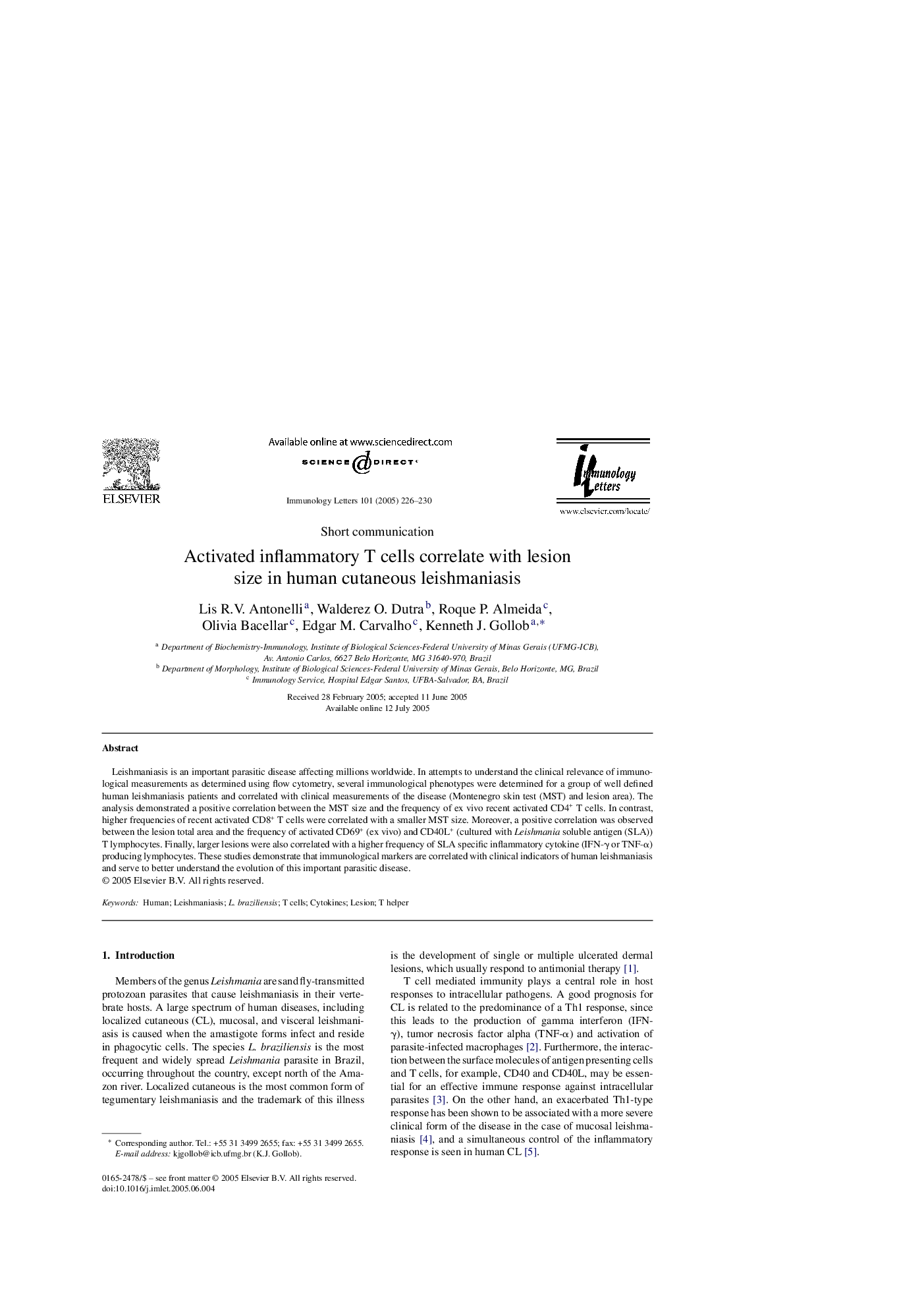| Article ID | Journal | Published Year | Pages | File Type |
|---|---|---|---|---|
| 9266202 | Immunology Letters | 2005 | 5 Pages |
Abstract
Leishmaniasis is an important parasitic disease affecting millions worldwide. In attempts to understand the clinical relevance of immunological measurements as determined using flow cytometry, several immunological phenotypes were determined for a group of well defined human leishmaniasis patients and correlated with clinical measurements of the disease (Montenegro skin test (MST) and lesion area). The analysis demonstrated a positive correlation between the MST size and the frequency of ex vivo recent activated CD4+ T cells. In contrast, higher frequencies of recent activated CD8+ T cells were correlated with a smaller MST size. Moreover, a positive correlation was observed between the lesion total area and the frequency of activated CD69+ (ex vivo) and CD40L+ (cultured with Leishmania soluble antigen (SLA)) T lymphocytes. Finally, larger lesions were also correlated with a higher frequency of SLA specific inflammatory cytokine (IFN-γ or TNF-α) producing lymphocytes. These studies demonstrate that immunological markers are correlated with clinical indicators of human leishmaniasis and serve to better understand the evolution of this important parasitic disease.
Related Topics
Life Sciences
Immunology and Microbiology
Immunology
Authors
Lis R.V. Antonelli, Walderez O. Dutra, Roque P. Almeida, Olivia Bacellar, Edgar M. Carvalho, Kenneth J. Gollob,
